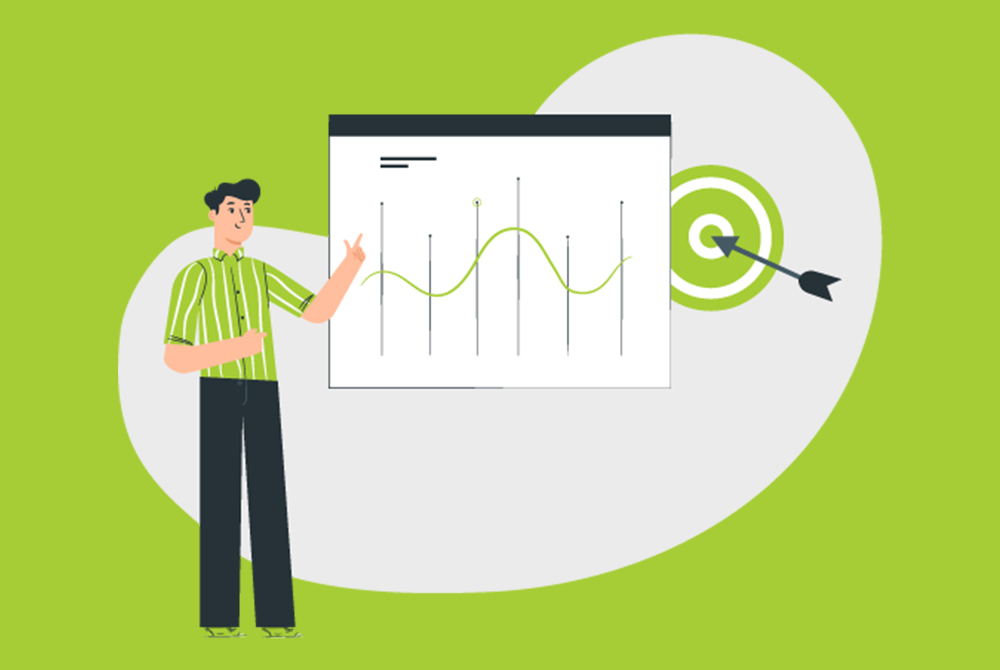
In an era where every digital interaction leaves a trace, businesses find themselves standing at the crossroads of intuition and precision, seeking a transformative approach to marketing. Performance marketing is a type of marketing that focuses on measuring and optimizing the return on investment (ROI) of marketing campaigns.
In this landscape of constant connectivity and information overload, the demand for a marketing strategy that transcends intuition has become more pronounced than ever. Businesses are confronted with the challenge of navigating through an intricate web of consumer data, striving to transform this wealth of information into actionable insights.
Just relying solely on gut instincts to drive marketing decisions is fading, giving way to a more nuanced and informed methodology – the era of Data-Driven Performance Marketing. As businesses stand at the crossroads, the choice becomes clear: embrace the power of data or risk being left behind in the wake of competitors who harness its potential.
Data-driven performance marketing represents a shift from traditional, broad-stroke approaches to a targeted and precise methodology. It’s about deciphering the digital footprints left by consumers, understanding their preferences, and crafting strategies that resonate with them on a personal level.
Data-Driven Performance Marketing
Data-driven performance marketing is a strategy rooted in data analysis and technology to make well-informed decisions, optimize campaigns, and achieve measurable results. Diverging from traditional marketing methods reliant on intuition or limited data, this approach places data at the forefront of every stage of the marketing process.
Key Principles
- Data Collection:
Robust data collection involves gathering information from various sources. This includes analyzing website analytics to understand user behavior, utilizing social media platforms for audience insights, integrating CRM systems to track customer interactions, and conducting surveys to gather specific feedback. The collected data spans a wide spectrum, encompassing everything from basic demographics to detailed conversion and click-through rates.
- Data Analysis:
Once the data is collected, the focus shifts to analysis. Advanced analytics tools play a crucial role in processing and interpreting the data effectively. These tools help marketers identify patterns, trends, and actionable insights that form the foundation for strategic decision-making.
- Segmentation:
Data allows for precise audience segmentation. Marketers can categorize their audience into distinct groups based on various criteria such as age, location, interests, and buying behavior. This segmentation enables tailored messaging and personalized marketing efforts, increasing the relevance of communication to different segments.
- A/B Testing:
A/B testing involves creating multiple versions of marketing campaigns or specific elements within those campaigns. By testing these variations against each other, marketers use data to determine which version performs better. This iterative process helps refine strategies based on concrete evidence rather than assumptions.
- Real-Time Optimization:
Data-driven marketing is dynamic and responsive. Marketers continually monitor campaign performance in real-time and make adjustments on the fly. This agility is a significant advantage, allowing for quick adaptations to changing market conditions and consumer behaviors.
Benefits of Data-Driven Performance Marketing
- Improved ROI:
Targeting the right audience and optimizing campaigns based on data insights lead to a substantial improvement in Return on Investment (ROI). By directing resources more effectively, businesses can maximize the impact of their marketing efforts.
- Personalization:
Data-driven marketing enables a high level of personalization. By understanding individual preferences and behaviors, marketers can craft personalized messages, resulting in increased customer engagement and satisfaction.
- Efficiency:
Automation tools streamline various marketing processes, saving both time and resources. This increased efficiency translates to cost savings for businesses, allowing for a more streamlined and effective operation.
- Data-Backed Decision-Making:
Data reduces the guesswork traditionally associated with marketing decisions. Marketers can make informed decisions backed by evidence, leading to more strategic and effective campaigns.
- Competitive Advantage:
Businesses that fully embrace data-driven marketing gain a competitive edge. They can adapt quickly to changing market conditions and evolving customer preferences, staying ahead of competitors who may rely on less data-informed strategies.
Strategies for Success in Data-Driven Performance Marketing
- Utilizing advanced analytics tools is crucial for effective data collection, processing, and interpretation. Investing in cutting-edge technology ensures that marketers have the necessary tools to derive meaningful insights.
- Ensuring data security and compliance with relevant regulations (such as GDPR or CCPA) is paramount. Building trust with customers requires a commitment to protecting their data and respecting privacy laws.
- Integrating data from various marketing channels provides a holistic view of customer interactions. This comprehensive perspective allows for a more nuanced understanding of customer journeys and preferences.
- Staying updated on the latest marketing trends and data analysis techniques is essential. The digital landscape evolves rapidly, and continuous learning ensures that marketers remain at the forefront of industry best practices.
- Encouraging collaboration between marketing, data, and IT teams is key to harnessing the full potential of data-driven marketing. Cross-functional collaboration ensures that insights are translated into actionable strategies seamlessly.
Check out this post: Unleashing the Power of Performance and Online Marketing Strategy: Can Entrepreneurs Ignore Marketing?
Data-driven performance marketing transcends being a mere buzzword; it represents a fundamental shift in how businesses approach marketing. By leveraging data, marketers can target the right audience, personalize messages, and continually optimize campaigns for superior results. Embracing data-driven marketing is not just an option; it’s a necessity for businesses aiming to thrive in the digital age. Begin collecting, analyzing, and acting on your data today to unlock the full potential of your marketing efforts.


